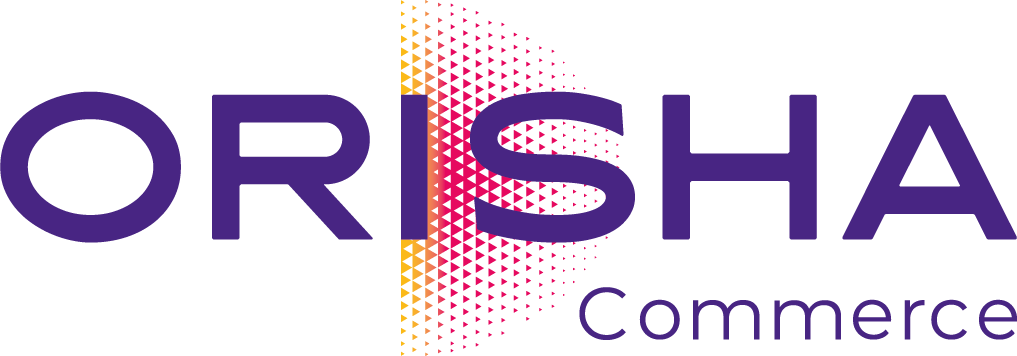Clienteling and data: the winning duo for enhancing the customer experience

Clienteling is a strategic approach to meet current consumer demands for personalization. This personalization is most effective when based on centralized information. Unified data offers a complete customer perspective, enabling personalized marketing that adapts in real time to customer needs and providing better support for sales associates in their interactions. This article explores how the integration of clienteling and data can create tailored and effective customer experiences.
Clienteling: redefining customer relationships
The challenges of clienteling
Clienteling is a sales approach that emphasizes building strong customer relationships. It aims to deliver highly personalized experiences based on a thorough understanding of customer behavior, preferences, and purchase history. Although luxury brands like Vuitton originally used clienteling in physical stores, it has now transitioned to digital platforms. The challenges of clienteling are both relational and commercial. It directly influences the perceived quality of service by customers and enhances in-store service effectiveness. Brands aim to meet increasing personalization demands, with 73% of customers expecting brands to understand their needs. Furthermore, centralized customer data ensures sales associates have access to up-to-date and comprehensive information, highlighting their role as experts in customer relationships.
Discover our CRM solution to enhance your customer relationships with flexible loyalty programs.
Enhancing the customer experience with clienteling
Clienteling ensures the customer experience is both human and highly relevant. This strategy fosters personalized connections based on comprehensive knowledge and anticipation of customer needs.
In-store, it translates to smoother interactions where sales associates can:
- Recognize customers;
- Understand their purchase histories;
- Deliver personalized service and tailored recommendations.
This elevated role of the sales associate enhances not only the customer experience but also the service quality at the point of sale. Online, clienteling is extended through consistent content, offers, and follow-ups aligned with customer expectations. Personalized clienteling minimizes irritants like irrelevant recommendations or channel disconnections. By ensuring continuity in the experience, this approach builds a trusting relationship between the brand and its customers.
Want to unlock the potential of personalization through data? Discover Openbravo POS and deploy a powerful clienteling strategy.
Best practices for effective clienteling
Successful clienteling hinges on the intelligent use of customer information. It requires centralizing data from all touchpoints (stores, e-commerce, marketplaces) into a unified platform for a 360° customer loyalty strategy. This centralized approach allows for precise audience segmentation and communication customized to each customer’s profile, purchase history, and preferences.
In-store clienteling success also depends on the tools and training provided to teams. Sales associates must have mobile tools that grant real-time access to customer information, facilitating quicker and more relevant service.
With Orisha Commerce’s CRM solution, you can ensure that your in-store sales associates have access to reliable and up-to-date customer data. Discover how to enhance the quality of your customer data!
Unified data: the cornerstone of personalization
Understanding unified data
Unified data encompasses all customer information consolidated into a single database, accessible by every department within a company. Rather than having fragmented data in silos, it is organized around a unique customer profile, allowing consistent tracking across all touchpoints. This consolidated data enables advanced personalization at scale, providing a comprehensive view of the customer.
Leveraging data in commercial strategy
Unified data enables brands to shift from a mass market approach to a more individualized strategy. It enhances the quality of customer relationships and overall business performance.
Without centralization, clienteling remains limited to partial and disconnected personalization, whereas well-utilized data ensures:
- Effectively utilized data guarantees:
- More relevant offers;
- Real-time adaptation to customer purchasing behaviors;
- Simplified decision-making through accurate indicators;
- Consistency between in-store and online actions.
Openbravo POS enhances the quality of your customer data, offering real-time information across all channels. Discover the solution!
Tools for data collection and analysis
To effectively gather and analyze data, brands utilize unified commerce solutions that integrate CRM, ERP, e-commerce platforms, and sales applications. These tools consolidate transactional, relational, and behavioral customer information from all channels into a single ecosystem, providing a complete and up-to-date view of the customer journey.
This integrated approach ensures detailed data analysis and allows for tracking key performance indicators such as conversion rates, customer satisfaction, and repeat purchase rates, thus enabling continuous optimization of sales and marketing actions.
Achieve a unified customer view and activate real-time personalization across all your channels for more relevant interactions with our CRM solution.
The synergy between clienteling and data
Clienteling and data: essential mutual enhancement
Clienteling and unified data complement each other to create a cohesive customer experience. Data gives clienteling a comprehensive customer profile, including online and in-store interactions, preferences, purchase history, campaign responses, and customer service inquiries.
Conversely, clienteling continuously enriches this data repository. Every interaction generates new information that enhances the customer knowledge base, creating a virtuous cycle that allows for real-time adjustments to customer journeys.
Advantages of clienteling for businesses and consumers
Clienteling enables businesses to provide personalized shopping journeys on a large scale, leading to increased conversion rates. The return on investment is evident through higher average spending, reduced churn, and improved in-store and online conversion rates. This approach also enhances the efficiency of sales associates, who benefit from real-time access to tools and data.
Consumers enjoy seamless experiences across channels and personalized interactions. This focus on the customer relationship transforms the purchasing process into a memorable experience.
Enhance loyalty by offering flexible programs and attractive rewards that foster attachment to your brand. Discover our solution!
Case studies of success
Sephora excels in personalized clienteling with a sophisticated strategy. The brand has adopted a unified approach that centralizes customer profiles across all channels. Utilizing artificial intelligence, Sephora analyzes customer behaviors to offer tailored recommendations. Their loyalty program is pivotal in collecting customer data, fostering an ongoing relationship that directly impacts customer lifetime value. This strategy has led to increased sales and higher customer spending.
Strategies to optimize personalized commerce
Integrating clienteling and unified data
Integrating clienteling and unified data requires the creation of an interconnected technological ecosystem. The first step is to centralize customer data from digital and physical channels into a single platform. This central repository becomes the foundation for clienteling initiatives, with data made accessible to sales associates through mobile applications or tablets.
Leveraging customer engagement
Contextual personalization involves adapting messages in real time based on the customer’s context. This is a powerful customer engagement tool that enables tailored recommendations closely aligned with customer expectations. Both in-store and remotely, advisors use this comprehensive knowledge to foster personalized interactions.

The crucial role of sales associate training
Sales associates are central to customer relationships, transitioning from transactional roles to personalized advising. Proper training allows them to master the tools they are given. Well-trained sales associates provide qualitative information to enhance the customer database and become key contributors to customer loyalty.
Clienteling, strengthened by unified data, fosters sustainable close relationships while enhancing business performance. It turns every touchpoint into an opportunity for loyalty and conversion. By emphasizing continuous and omnichannel personalization, brands can craft seamless and memorable shopping experiences that fulfill the growing demands of consumers.
Frequently asked questions
What is clienteling and how does it work?
Clienteling is a customer relationship personalization technique that uses customer data to deliver tailored interactions both online and in-store through sales teams.
What are the benefits for companies implementing a clienteling strategy?
Clienteling helps brands boost loyalty, average basket size, and conversion rates by providing a more personalized experience. This strategy also improves sales associate efficiency by equipping them with tools to better support each customer.
How to implement effective clienteling?
An effective clienteling strategy involves three key elements:
Collecting and storing customer data on a centralized platform;
Providing sales associates with the right tools;
Training sales associates for personalized customer service.
Article originally published on 14 June 2025, updated on 18 November 2025





